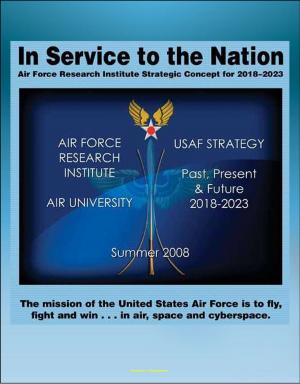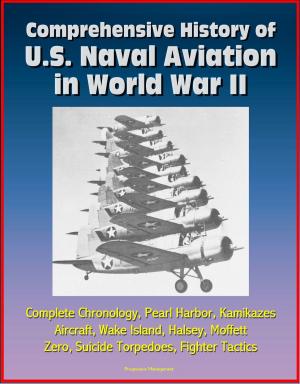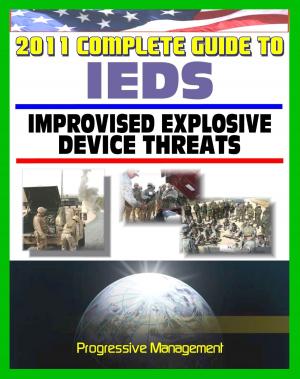National Defense Intelligence College Paper: Intelligence Professionalism in the Americas - Mexico, Argentina, Brazil, Peru, Chile, Uruguay, Colombia, Bolivia, FARC, Russian Mafia, Submersibles
Nonfiction, Social & Cultural Studies, Political Science, International| Author: | Progressive Management | ISBN: | 9781310820403 |
| Publisher: | Progressive Management | Publication: | December 14, 2013 |
| Imprint: | Smashwords Edition | Language: | English |
| Author: | Progressive Management |
| ISBN: | 9781310820403 |
| Publisher: | Progressive Management |
| Publication: | December 14, 2013 |
| Imprint: | Smashwords Edition |
| Language: | English |
This unique and informative paper was produced by the National Intelligence University / National Defense Intelligence College. This book makes a significant contribution to our understanding of intelligence services. "Intelligence studies" have developed over the last twenty-five years within the academic disciplines of political science and international relations, but the subject is still at a relatively early stage of development. There has been extensive published analysis of the United States intelligence system, and some also of its British counterpart; but there is little writing about Western-style intelligence as a whole, and almost nothing on contemporary non-Western systems. The subject as a whole lacks the comparative studies needed to identify the commonalities that give intelligence everywhere its place — an increasingly important place — in the international system now developing. This book fills an important part of the gap.
Its subject is one that has been barely tackled anywhere else: What gives modern intelligence practitioners and their organizations their claims to professionalism, and what actually does this professionalism entail? Intelligence as an activity is partly a matter of special skills — agent recruitment and running; cipher-breaking and other SIGINT techniques; imagery interpretation; and all the others — but these merge into its broader professional canons for handling indications and evidence, drawing conclusions, and presenting these to decision-takers in ways that command attention while incorporating careful judgments of certainty and uncertainty. The intelligence professional is close to the policy adviser, but still keeps a certain distance from him. Intelligence's concern is with understanding and evaluating "them," rather different from the policy adviser's roots in "us" and in what "our" decisions should be. This book examines ways in which intelligence develops its characteristic standards of accuracy and duty. It considers the effects of formal legal codes and democratic oversight, but a principal conclusion emerging from it is the importance of professional training. Its implicit sub-text is indeed that standards of intelligence analysis and integrity should be properly taught, and not just caught by osmosis from one's seniors. At least for this British reader, the amount of formal analytic training in the relatively modest national intelligence systems described here is surprising and thought-provoking, perhaps salutary.
Topics and subjects: Argentina AFP, IIFA; Brazil SISBIN, SISP, SINDE, SNI, ESNI, ABIN; Mexico CISEN, DFS, DGIPS, Sedena, S-2, PFP; Peru CNI, DINIE, DIN, DIFAP, DIGIMIN; Chile DISPI, DID, DIDENA, DIPOLCAR; Colombia DAS, D-2, M-2; Uruguay SID, SIFFAA, DINACIE; FARC; Shining Path; Zapatista; Augusto Pinochet; Carabineros; Alberto Fujimori; MLN-Tupamaros; OAS, Russian Mafia; Medllin Cartel; Cali Cartel; LTTE Tamil Tigers; Norte del Valle Cartel; Drug traffic; Narcotraffic; international criminal networks; submersibles.
This unique and informative paper was produced by the National Intelligence University / National Defense Intelligence College. This book makes a significant contribution to our understanding of intelligence services. "Intelligence studies" have developed over the last twenty-five years within the academic disciplines of political science and international relations, but the subject is still at a relatively early stage of development. There has been extensive published analysis of the United States intelligence system, and some also of its British counterpart; but there is little writing about Western-style intelligence as a whole, and almost nothing on contemporary non-Western systems. The subject as a whole lacks the comparative studies needed to identify the commonalities that give intelligence everywhere its place — an increasingly important place — in the international system now developing. This book fills an important part of the gap.
Its subject is one that has been barely tackled anywhere else: What gives modern intelligence practitioners and their organizations their claims to professionalism, and what actually does this professionalism entail? Intelligence as an activity is partly a matter of special skills — agent recruitment and running; cipher-breaking and other SIGINT techniques; imagery interpretation; and all the others — but these merge into its broader professional canons for handling indications and evidence, drawing conclusions, and presenting these to decision-takers in ways that command attention while incorporating careful judgments of certainty and uncertainty. The intelligence professional is close to the policy adviser, but still keeps a certain distance from him. Intelligence's concern is with understanding and evaluating "them," rather different from the policy adviser's roots in "us" and in what "our" decisions should be. This book examines ways in which intelligence develops its characteristic standards of accuracy and duty. It considers the effects of formal legal codes and democratic oversight, but a principal conclusion emerging from it is the importance of professional training. Its implicit sub-text is indeed that standards of intelligence analysis and integrity should be properly taught, and not just caught by osmosis from one's seniors. At least for this British reader, the amount of formal analytic training in the relatively modest national intelligence systems described here is surprising and thought-provoking, perhaps salutary.
Topics and subjects: Argentina AFP, IIFA; Brazil SISBIN, SISP, SINDE, SNI, ESNI, ABIN; Mexico CISEN, DFS, DGIPS, Sedena, S-2, PFP; Peru CNI, DINIE, DIN, DIFAP, DIGIMIN; Chile DISPI, DID, DIDENA, DIPOLCAR; Colombia DAS, D-2, M-2; Uruguay SID, SIFFAA, DINACIE; FARC; Shining Path; Zapatista; Augusto Pinochet; Carabineros; Alberto Fujimori; MLN-Tupamaros; OAS, Russian Mafia; Medllin Cartel; Cali Cartel; LTTE Tamil Tigers; Norte del Valle Cartel; Drug traffic; Narcotraffic; international criminal networks; submersibles.















